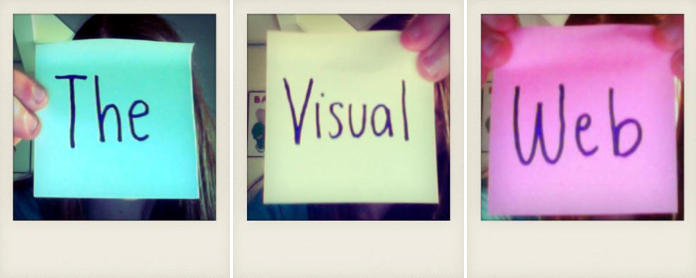Every day, in my Facebook news feed, I'll see countless photos: from Instagrammed shots of mouth-watering dinners, to new profile and cover pictures, and of course, multiple albums posted by friends seemingly just to make me jealous (hint to my Facebook friends: stop uploading albums entitled 'Europe Summer 2012 YAY!' and posting them to all your Aussie friends in the middle of winter.)
I see these photos every day, but hardly ever do I stop to question them. Wow, that dinner looks amazing, I think to myself, cursing my dad's specialty of pasta-with-sauce-from-a-packet; but it doesn't often occur to me that without the Instagram filters, it probably wouldn't be that special. Wow, she looks like a model in that profile picture, I think to myself, vowing to increase my diet and exercise levels tenfold, and ignoring the clear influence of photoshop on the image. And although I know from personal experience that awesome holiday photos don't always accurately reflect how much you're enjoying a trip, it's easy to forget this when I'm huddled under four blankets scrolling through photos of my friends island hopping around the Mediterranean.
"We don't trust words because they're words, but we trust pictures because they're pictures. That's crazy."
The tendency for people to view photographs as accurate representations of reality is discussed by Scott Rosenberg in this 2009 article. Rosenberg quotes documentary photographer Pedro Meyer, who says, "I think it's very important for people to realise that images are not a representation of reality."Why does he say this? Because images, just like words, can be manipulated. Images, just like words, are selective. "We don't trust words because they're words," Meyer says, "but we trust pictures because they're pictures. That's crazy. It's our responsibility to investigate the truth, to approach images with care and caution."
I think this particularly rings true with the practice of image sharing across social networks. People share photos of their lives, or images of things they like, and this contributes to their online persona, a constructed version of the self. We don't post photos of ourselves when we're by ourselves, squashed on a train, upset after a long, hard day. We post photos of us having a great time with friends. We don't post pictures of our cluttered bedrooms or dirty streets. We post images of pretty objects and beautiful landscapes. Through images, we share certain things, and not others, to project a particular image of ourselves.
As a group, we're all really fascinated with this idea, and that's why, out of all our many ideas, we decided to narrow our project to this:
As a group, we're all really fascinated with this idea, and that's why, out of all our many ideas, we decided to narrow our project to this:
How is image sharing affecting/shaping/contributing to our sense of self?
Through this blog, we're all going to go on individual image sharing journeys to explore this idea. Nicola is going to explore instagram; Mel will be exploring facebook and the profile pic, cover photo, and tagging; Paul will be looking at photo editing and sharing with iPhoto, Ash will be looking at mummy blogging and how many babies born today will have photos all over the internet of them at all ages by the time they're our age; and I'll be taking a little journey into the wonderful world of tumblr. But for now, goodnight!

No comments:
Post a Comment